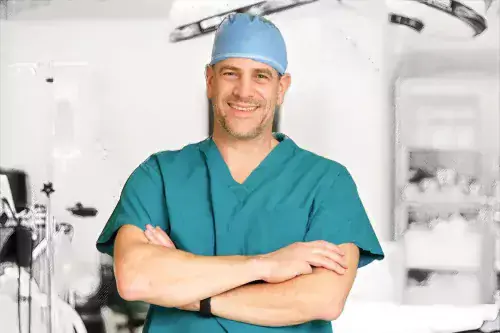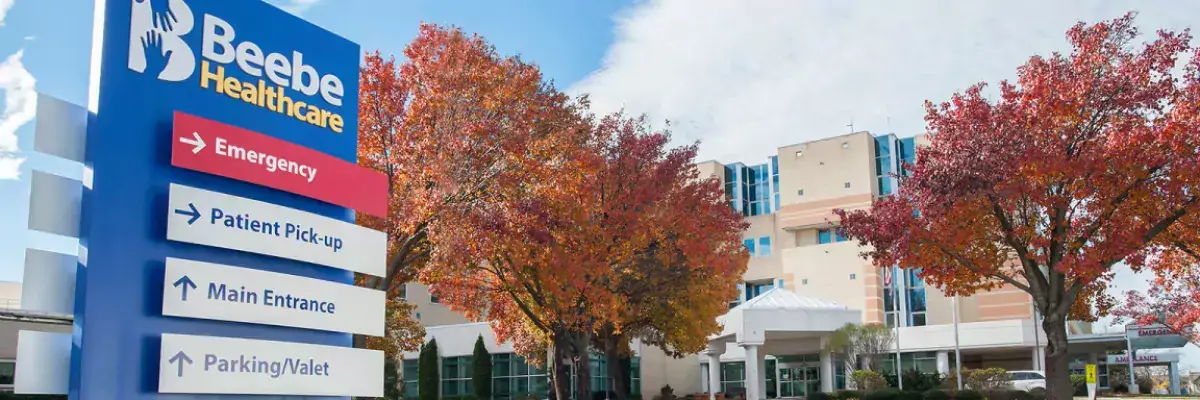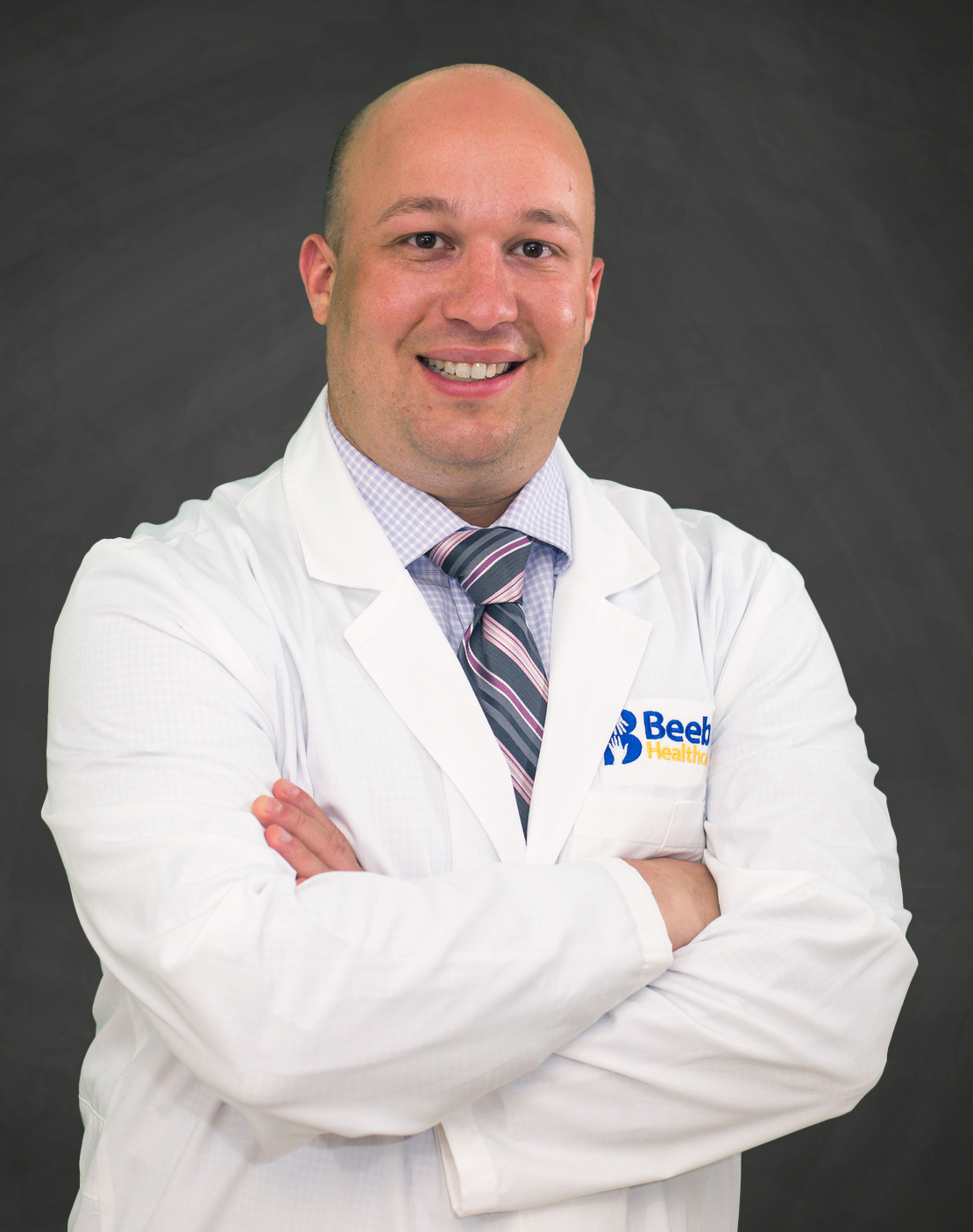Experienced Hernia Treatment, Close to Home

By Erik Stancofski, MD, Beebe General Surgery
When it comes to hernia repair, experience matters.
Hernias are very common. Nearly 5 million people in the United States today are living with hernias. They can present at any age, from birth to advanced adulthood. A hernia is essentially a weakness in the abdominal wall through which an organ can protrude. These typically occur at naturally weak spots such as the groin (inguinal hernias), the navel (umbilical hernias), or previous incisions (incisional hernias). They affect both men and women, although inguinal hernias are more common in men.
Hernias are more common in active people.
Beebe’s specialized team of surgeons work with you to determine the best plan for treatment of your hernia depending on its size and location, among other factors.
Beebe Healthcare’s specialized general surgeons have the expertise to identify and treat hernias. The surgical team offers the latest in minimally invasive and robotically assisted hernia treatment. In addition, the surgical teams have experience when it comes to treating emergency hernia issues.
How are hernias caused?
There are several types of hernia and several ways that a hernia might happen.
Inguinal hernias occur in the groin. These are most common in men, however, women do experience them in some cases. These hernias are often caused when lifting something too heavy or putting strain on the groin area near the abdomen. When a hernia happens, the contents of the abdomen, namely the intestine, protrude through a weakness or tear in the abdominal wall muscle creating a visible bulge.
Incisional or ventral hernias occur in the abdomen in the area of any prior surgical incision or scar. These are often noticeable because of swelling or a bulge near a previous surgical incision or scar.
Umbilical hernias occur around the naval or belly button area. These are often caused by a defect that is present at birth. In other cases, these types of hernia occur due to excess weight, during a fit of severe coughing, or during pregnancy.
An incarcerated hernia contains an organ (usually a segment of bowel) that does not return “inside.” An operation is urgent at this time to prevent a strangulation, which is when the blood supply to that piece of bowel is interrupted from swelling or a kink.
It is always better to repair hernia electively. The patient can chose the date of the operation, arrange for help after surgery, stop certain medications that can interfere with clotting and healing, and see their medical doctor, cardiologist, or lung doctor in preparation for surgery. This luxury is gone when the operation is urgent and even more so when it is emergent. Also, hernias never get better or smaller. They usually slowly enlarge and become more symptomatic (pain, pressure, bulge, bowel and bladder issues).
Hernias do not go away on their own. In fact, most hernias will get larger over time, so it is important to talk to your doctor quickly after noticing a hernia.
Hernia can lead to serious medical conditions, especially if a hernia becomes trapped. In this case, the hernia can cause a loss in blood supply or can block intestinal flow, which can lead to emergency surgery.
Treating a hernia
Providers treat both new hernia and hernia that have occurred in the same or similar location more than once. In most cases, the surgical team is able to offer a minimally invasive procedure, which allows you to return home on the same day or the day after the procedure.
Recovery from a hernia repair depends on the method used to fix it, its size, and its location. Most patients can expect to limit their activity for a week or two, followed by progressive increase in activity for the next two weeks. People are usually back doing normal activities by four weeks. These restrictions are usually less for those who have had minimally invasive surgery (laparoscopic and robotic).
If you have an untreated hernia or a recurrent hernia, talk to your healthcare provider about having it repaired by the team at Beebe General Surgery.
Anyone diagnosed with a hernia should consider having hernia repair surgery. Beebe General Surgery offers consultations and can answer all of your questions about what you can expect from surgery.
If you have a hernia, or think you have one, discuss with your primary healthcare provider about having it surgically repaired, or call 302-703-3630 to schedule an appointment with one of our surgeons to discuss your options. To receive more information or to ask a question, fill out this online form to request more information.
Erik Stancofski, MD, is a board certified general surgeon with Beebe Medical Group. He received his medical degree from the American University of Beirut, Lebanon and completed a residency in general surgery at St. Agnes Hospital in Baltimore, Md. Additionally, he earned his Healthcare MBA from George Washington University, in 2008. He practices with Beebe General Surgery in Lewes.
Learn more about Hernia Repair Procedures at Beebe.
Request more information on Hernia Repair by filling out this form.



